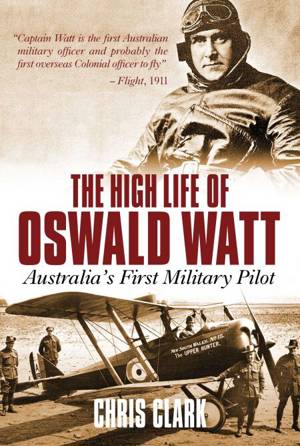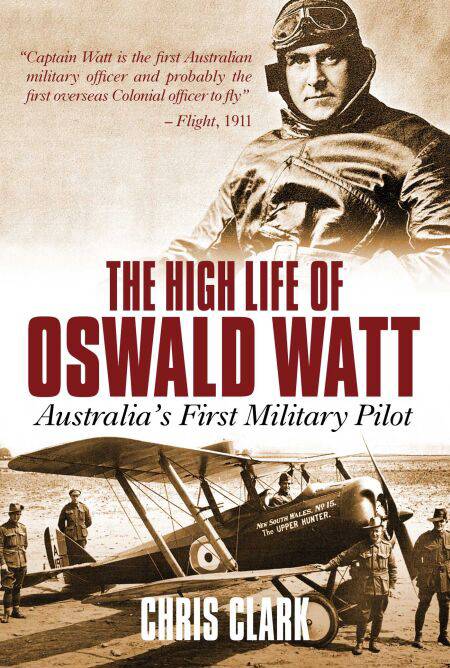
Bedankt voor het vertrouwen het afgelopen jaar! Om jou te bedanken bieden we GRATIS verzending (in België) aan op alles gedurende de hele maand januari.
- Afhalen na 1 uur in een winkel met voorraad
- In januari gratis thuislevering in België
- Ruim aanbod met 7 miljoen producten
Bedankt voor het vertrouwen het afgelopen jaar! Om jou te bedanken bieden we GRATIS verzending (in België) aan op alles gedurende de hele maand januari.
- Afhalen na 1 uur in een winkel met voorraad
- In januari gratis thuislevering in België
- Ruim aanbod met 7 miljoen producten
Zoeken
€ 6,76
+ 6 punten
Omschrijving
‘Father of the Flying Corps’ and ‘Father of Australian Aviation’ were two of the unofficial titles conferred on Oswald (“Toby”) Watt when he died in tragic circumstances shortly after the end of the First World War. He had become the Australian Army’s first qualified pilot in 1911, but spent the first 18 months of the war with the French Air Service, the Aéronautique Militaire , before arranging a rare transfer to the Australian Imperial Force. Already an experienced combat pilot, he rose quickly through the ranks of the Australian Flying Corps, becoming a squadron leader and leading his unit at the battle of Cambrai, then commander of No 1 Training Wing with the senior AFC rank of lieutenant colonel. These were elements in a colourful and at times romantic career long exciting interest and attention—not just during Watt’s lifetime but in the interval since his death nearly a century ago. His name had been rarely out of Australian newspapers for more than a decade before the war, reflecting his wealthy lifestyle and extensive and influential social and political connections. But this focus has enveloped Watt’s story with an array of false and misleading elements verging on mythology. For the first time, this book attempts to establish the true story of Watt’s life and achievements, and provide a proper basis for evaluating his place in Australian history.
Specificaties
Betrokkenen
- Auteur(s):
- Uitgeverij:
Inhoud
- Aantal bladzijden:
- 352
- Taal:
- Engels
Eigenschappen
- Productcode (EAN):
- 9781925520163
- Verschijningsdatum:
- 4/08/2016
- Uitvoering:
- E-book
- Beveiligd met:
- Adobe DRM
- Formaat:
- ePub

Alleen bij Standaard Boekhandel
+ 6 punten op je klantenkaart van Standaard Boekhandel
Beoordelingen
We publiceren alleen reviews die voldoen aan de voorwaarden voor reviews. Bekijk onze voorwaarden voor reviews.









